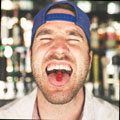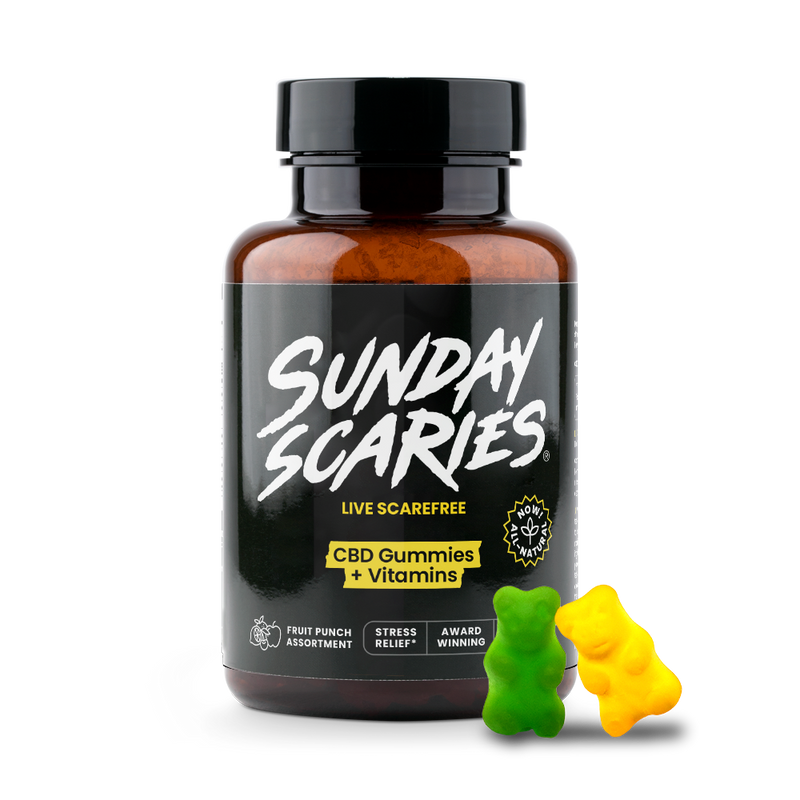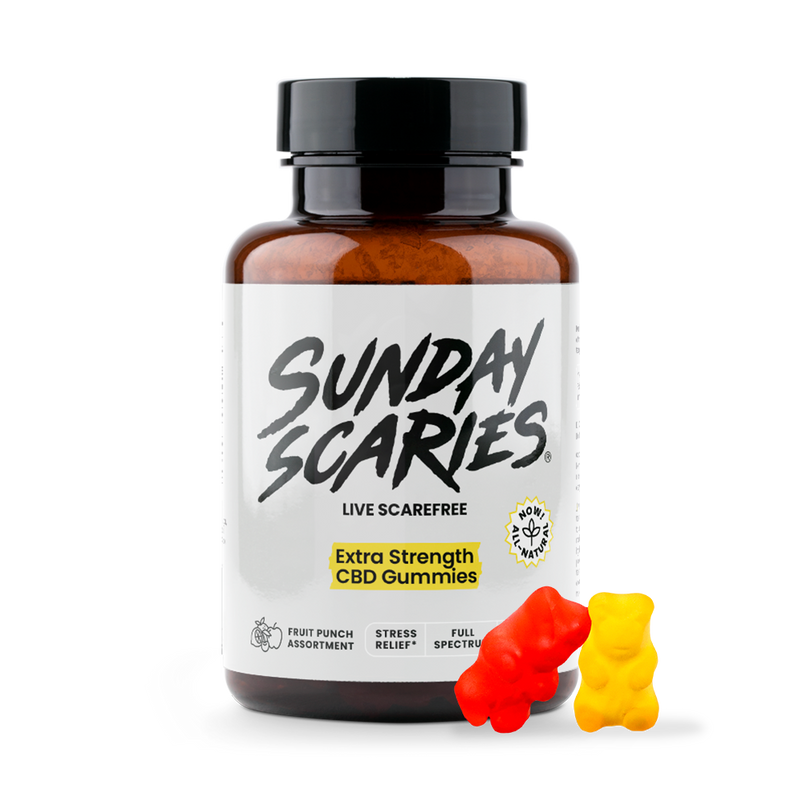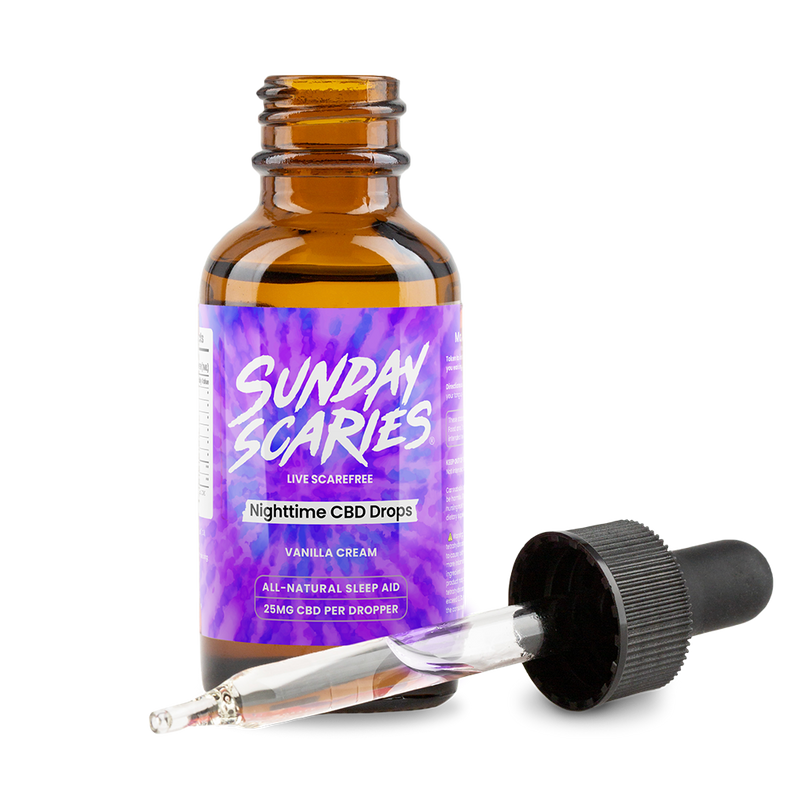
What is Hangxiety? How to Relieve Anxiety after Drinking Alcohol
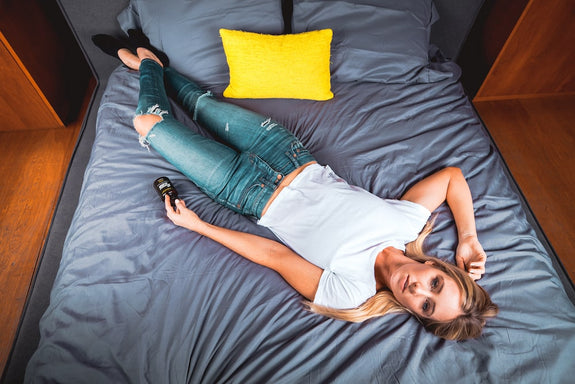
Feeling anxious after drinking isn’t abnormal. There's actually a term for it, ‘hangxiety,’ and understanding why it happens is the first step toward relief.
This guide will lead you through recognizing symptoms and offer tactics for regaining calm after a night of drinking.
Key Takeaways
- Hangxiety is a combination of hangover and anxiety symptoms that occurs after drinking alcohol, caused by alcohol’s impact on the brain, dehydration and emotional factors.
- Symptoms of hangxiety include physical discomforts such as headaches and nausea, as well as psychological distress like increased worry and panic attacks, which can last up to a week.
- Managing hangxiety involves staying hydrated, practicing relaxation techniques, social support and setting personal limits on alcohol consumption to help prevent it.
Understanding Hangxiety

Hangxiety, also known as hangover anxiety, is a cocktail of alcohol hangover symptoms and anxiety that hits after drinking alcohol.
This unfortunate blend can turn your post-night-out recovery into a grueling experience, leaving you with a pounding headache, a churning stomach, and a mind filled with worry and unease, often referred to as post-drinking anxiety.
But what causes hangxiety? How does drinking alcohol lead to feelings of anxiety? We will examine the primary culprits behind this, including the impact of alcohol on the brain, dehydration and emotional factors.
Alcohol's Impact on the Brain
Drinking alcohol sparks a chain of chemical reactions in your brain. Initially, it leads to an increase in dopamine, a neurotransmitter that generates feelings of pleasure and relaxation. Think of that warm, fuzzy feeling you get during your first few drinks. That’s dopamine at work.
But as the effects of alcohol wear off, the story takes a different turn. Some of the negative effects of alcohol include:
- Impaired judgment and decision-making
- Trouble concentrating
- Slowed reaction time
- Increased feelings of isolation
- Decreased coordination and balance
- Memory problems, brownouts and blackouts
- Increased risk of accidents and injuries
- Liver damage and other health problems
Alcohol also affects another neurotransmitter called gamma-aminobutyric acid (GABA). Normally, GABA slows down brain activity and brings a sense of calmness.
But heavy drinking throws this balance off, leading to a reduction in the number of GABA receptors and an increase in glutamate levels, a neurotransmitter responsible for excitement.
As the effects of alcohol wear off, this imbalance can leave you feeling anxious and physically discomforted, classic signs of hangxiety.
The Role of Dehydration
Alcohol is a diuretic, meaning it prompts your body to eliminate fluids. This leads to dehydration, which doesn’t just leave you thirsty, but can also contribute to anxiety and mood changes.
Ever wonder why you feel so drained and low after a night of drinking? Blame it on dehydration.
Dehydration can also disrupt your sleep quality. Poor sleep can increase feelings of anxiety and depression, adding another layer to your hangxiety.
So, the more alcohol you drink, the more you should stay hydrated.
Emotional Factors
When you drink alcohol, it’s not just the physiological symptoms that contribute to hangxiety. Emotional factors play a significant role too. Regret about decisions made during a night of drinking or worry about the events you can’t fully remember can increase anxiety.
Existing mental health conditions can also make hangxiety worse. If you struggle with anxiety or depression, alcohol can exacerbate these symptoms, making your hangxiety more intense and harder to manage.
Knowing the emotional triggers of your hangxiety can be the first step towards managing it more effectively.
Identifying Hangxiety Symptoms

Differentiating hangxiety from a typical hangover is crucial. While a hangover may leave you with physical discomfort like headaches and nausea, hangxiety takes it a step further.
It adds psychological distress to the mix, manifesting as increased worry, panic attacks and mood disturbances separate from the physical effects of a hangover.
We will further explore these physical and psychological symptoms of hangxiety, which can impact cognitive and physical functioning, as well as cause physical or emotional pain.
Physical Symptoms
Physical symptoms of hangxiety come with the same symptoms of regular hangover. A pounding headache, nausea, and sensitivity to light are common culprits.
But these physical hangover symptoms are more than just the aftermath of a night of drinking.
The headaches during hangxiety can be attributed to the chemical changes in your brain caused by alcohol’s impact on GABA receptors.
As the effects of alcohol wear off, fluctuations in brain activity levels can lead to a throbbing headache.
Meanwhile, nausea can be traced back to the impact of heavy drinking on cortisol levels, alcohol withdrawal, and individual alcohol intolerance. Understanding these triggers can help you manage these symptoms more effectively.
Psychological Symptoms
Psychological symptoms of hangxiety go beyond the physical discomfort of a hangover. They include feelings of social anxiety, hangover depression and worry that can persist for a period ranging from 24 hours to a week.
Moreover, alcohol consumption can lead to the development of new anxiety symptoms and exacerbate existing ones.
This can disrupt sleep patterns and lead to a spike in stress hormones. Recognizing these psychological symptoms and their potential impact on your mental health is vital.
Managing Hangxiety: Tips for Relief

While hangover anxiety can be a distressing experience, there are effective ways to manage it. These strategies involve staying hydrated, practicing relaxation techniques and seeking social support.
Let's discuss these tips and their effectiveness in combating hangxiety.
Hydration and Nutrition
Staying hydrated is your first line of defense against hangxiety. It helps to combat the dehydration caused by alcohol consumption, which can exacerbate anxiety symptoms.
Drinking water or hydrating sports drinks can help replenish the fluids lost to alcohol’s diuretic effect.
A good rule of thumb when you start drinking alcohol is to have a 16oz glass of water after every alcoholic beverage. You basically switch on and off.
Nutrition also plays a significant role in managing hangxiety symptoms. Consuming a light meal that is easy to digest, and nutrient-enhancing drinks can help restore your body’s balance and alleviate symptoms of hangxiety.
Hangxiety can be exacerbated when you're on an empty stomach, so if you want to watch out for your physical health after you drink alcohol check out this list of the best food for hangover anxiety.
Keep in mind, recovery from hangxiety involves not just rest, but also nourishing your body.
Relaxation Techniques
Relaxation techniques like deep breathing exercises and mindfulness meditation can be potent tools in your hangxiety management kit.
These practices can reduce stress responses and increase feelings of relaxation, helping you cope with the emotional turmoil of hangover anxiety.
Deep breathing exercises and mindfulness medication can significantly lower anxiety and stress responses, enhancing relaxation. They can keep you aware and in the present moment, instead of fearing your decisions of the past or unknown events of the future.
Incorporating these techniques into your routine can make a big difference.
Social Support
During times of distress like hangxiety, social support can be a lifeline. Friends and loved ones can offer a sense of comfort and stability, helping to ease anxious feelings like isolation linked to a hangover.
Whether it’s a comforting conversation, engaging in physical activity together, or simply being present, social support can make managing hangxiety a lot more bearable.
Discussing concerns with trusted individuals, and partaking in stress-relieving activities together can be beneficial.
Don’t forget, you are not alone in this. Don’t hesitate to reach out to your support network when hangover anxiety strikes.
Preventing Hangxiety: Responsible Drinking Habits

While managing hangxiety is essential, prevention is always better than cure. Preventing hangover anxiety requires responsible drinking habits, such as:
- Moderation, pacing and setting personal limits
- Alternating with non-alcoholic drinks
- Incorporating supplements pre and post drinking
Let's explore these strategies and their potential to prevent hangxiety.
Moderation, Pacing and Setting Personal Limits
Moderation is key to preventing hangover anxiety.
This means adhering to the recommended alcohol limits, which involve consuming up to one drink per day for women and up to two drinks per day for men.
But, let's face it, sometimes you're partying or celebrating a special life event. It's ok to go over these limits during those occasions, but you should still set a higher limit when you drink heavily and you should ensure you don't make a lifestyle out of this.
Remember, the aim is to enjoy the social event, not getting too torqued to the point where you don't even remember it.
Don’t forget, saying 'no' is perfectly chill. In fact, you can be the hero by reminding your drinking buddies that experiencing anxiety the next day sucks, and that you ALL should taper back so you can enjoy the next day.
Alternating with Non-Alcoholic Drinks
Another effective strategy for preventing hangxiety is alternating alcoholic drinks with non-alcoholic ones. This can reduce your alcohol consumption and keep you hydrated, helping to prevent hangover anxiety.
Non-alcoholic drinks serve as alternative options to alcoholic beverages, assisting in the reduction of alcohol consumption and preventing over-consumption.
So, next time you’re out, consider swapping that cocktail for a mocktail in between rounds.
A Good Hack: Get a soda water with lime in a tall collins glass. This will trick your mind into thinking the water is alcohol, hydrate you, and everyone around you will think you're still boozing. Win-win-win.
Incorporating Supplements Pre and Post Drinking
To further enhance your protective measures against hangxiety, the use of certain supplements before and after drinking can be beneficial.
Pre-Drinking Supplements
Before you start drinking, consider taking supplements that can aid in alcohol metabolism and provide protective effects to your liver.
Milk Thistle is a popular herbal supplement known for its liver-protecting effects. It has been used for hundreds of years to treat liver and gallbladder diseases. Recent studies suggest that it might protect the liver from toxins produced by alcohol.
B-Vitamins, particularly B1 (thiamine), B6 (pyridoxine), and B12 (cobalamin), can help your body metabolize alcohol. Alcohol depletes B-vitamins in your body, and taking some CBD gummies enhanced with Vitamin B12 ahead of time can offset this effect.
Remember, these supplements should be taken as a precautionary measure and not a green light to binge drink. Always drink responsibly.
Post-Drinking Supplements
Post-drinking supplements are typically geared towards replenishing what alcohol has depleted in your body and helping to relieve hangover symptoms. .
N-Acetyl Cysteine (NAC) is an antioxidant that can help your body produce glutathione, a compound that helps your body detoxify acetaldehyde, a toxic by-product of alcohol metabolism.
GABA levels, as discussed, can get thrown off with alcohol use and can lead to high feelings of stress and have a negative impact on sleep. Try using a CBD + CBN sleep oil enhanced with GABA to promote healthy sleep after a night of boozing.
Incorporating these supplements into your routine may help in managing the emotional withdrawal and intense stress associated with drinking.
However, remember that these are not a cure-all solution and should be used in conjunction with responsible drinking habits, proper hydration, nutrition and self-care practices.
Hangxiety and the Sunday Scaries
Hangxiety often intensifies on Sundays, a phenomenon commonly known as the "Sunday Scaries".
This anxiety spike is attributed to the looming reality of a new week, coupled with the physical and emotional toll of a hangover.
The anticipation of work responsibilities, performance anxiety at work, deadlines, and social obligations can trigger anxiety, compounded by the physiological effects of heavy drinking.
So, if you feel your anxiety levels spiking on Sunday, it's most likely due to the fact that Saturday is a big night of drinking and there's a common apprehension about the start of the new week.
Again, don't worry, you're not alone.
When to Seek Professional Help

While hangover anxiety can often be managed with the strategies discussed above, there are situations where professional help may be needed.
Persistent Anxiety
Persistent anxiety is a prolonged sense of anxiety or dread that significantly disrupts daily activities and is frequently associated with generalized anxiety disorder (GAD). If you’re experiencing persistent anxiety, it might be time to seek professional help.
Alcohol Use Disorder
Alcohol Use Disorder encompasses a range of conditions including alcohol abuse, alcohol dependence and alcohol addiction. Alcohol use disorder can be a byproduct of social anxiety and seeking help from a doctor is key.
Mental Health Support
Mental health support services can assist individuals in managing hangxiety by offering support, coping strategies, and addressing underlying issues that contribute to anxiety. Therapies like cognitive behavioural therapy (CBT) can assist individuals in developing effective coping strategies for underlying anxiety issues that contribute to hangxiety.
Summary
In this blog post, we’ve explored the world of hangxiety - an unpleasant blend of hangover and anxiety that can turn the morning after into a nightmare.
We’ve shed light into its causes, from alcohol’s impact on the brain to dehydration and emotional factors.
We’ve unpacked its physical and psychological symptoms, and shared effective strategies for managing and preventing hangxiety.
We’ve also discussed how hangover anxiety is heightened on Sundays when the Sunday Scaries hit, and when it’s crucial to seek professional help.
Remember, while socializing and enjoying a drink can be fun, it’s essential to do so responsibly, keeping your well-being in mind.
After all, a night of fun should not lead to a morning of distress where it feels like your world is collapsing.

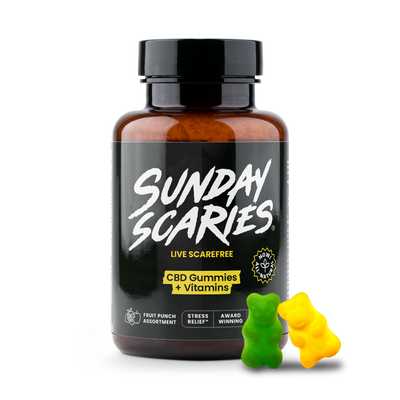 CBD Gummies
Stress Relief
CBD Gummies
Stress Relief
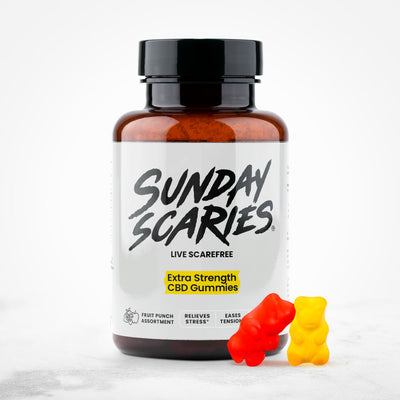 Extra Strength CBD Gummies
Stress Relief
Extra Strength CBD Gummies
Stress Relief
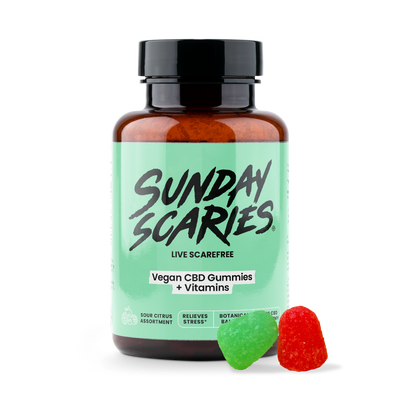 Vegan CBD Gummies
Stress Relief
Vegan CBD Gummies
Stress Relief
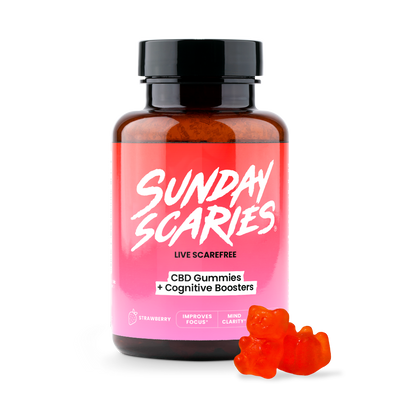 CBD Gummies for Focus
Focus Boost
CBD Gummies for Focus
Focus Boost
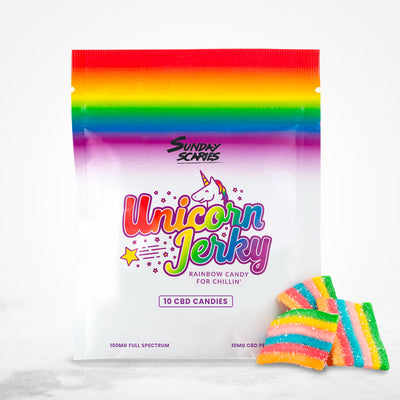 CBD Candy
Mood Lift
CBD Candy
Mood Lift
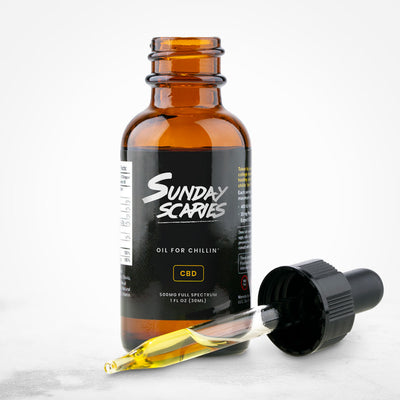 CBD Daytime Oil
Stress Relief
CBD Daytime Oil
Stress Relief
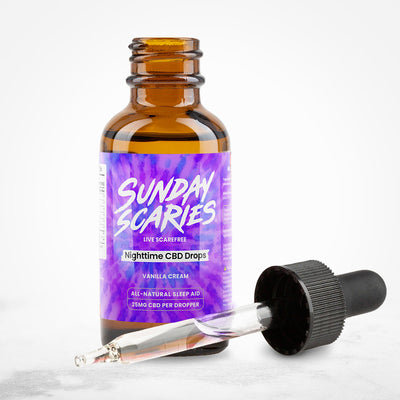 CBD Sleep Oil
Sleep Aid
CBD Sleep Oil
Sleep Aid
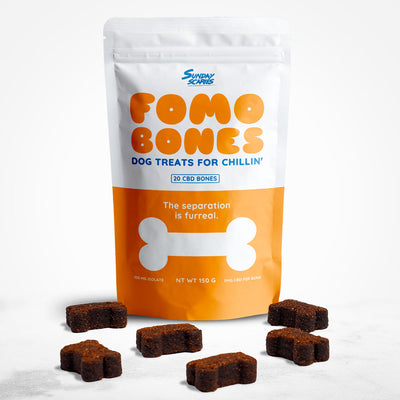 CBD Dog Treats
Stress Relief
CBD Dog Treats
Stress Relief
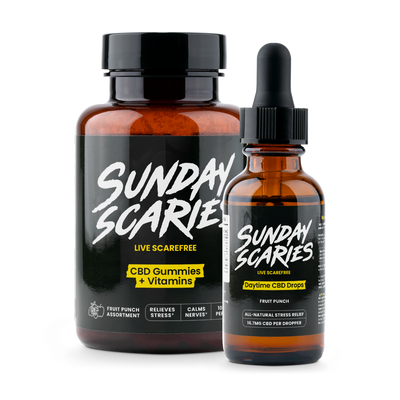 Side Piece Bundle
Stress Relief
Side Piece Bundle
Stress Relief
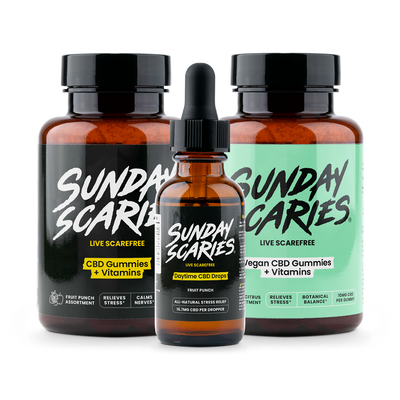 Rando Bundle
Stress Relief
Rando Bundle
Stress Relief
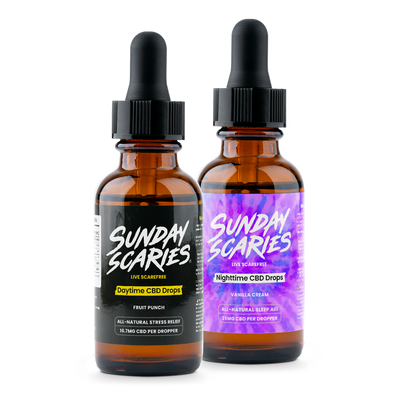 Sunrise & Sunset CBD Oil Bundle
Stress Relief
Sunrise & Sunset CBD Oil Bundle
Stress Relief
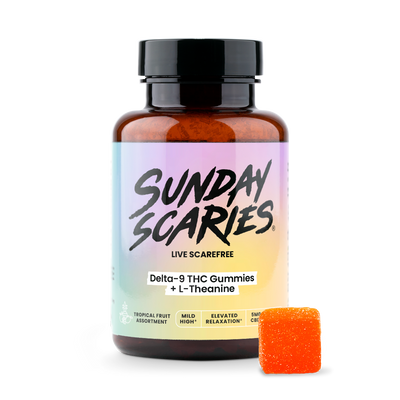 5mg Delta-9 Gummies
Euphoria
5mg Delta-9 Gummies
Euphoria
 10mg Delta-9 Gummies
Euphoria
10mg Delta-9 Gummies
Euphoria
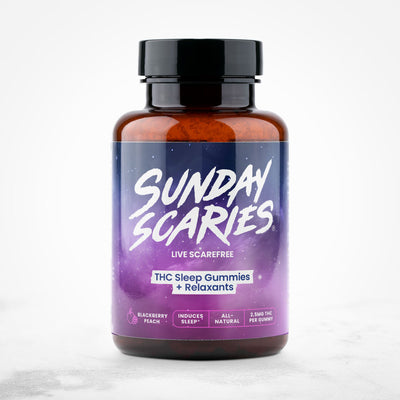 THC Gummies for Sleep
Sleep Aid
THC Gummies for Sleep
Sleep Aid
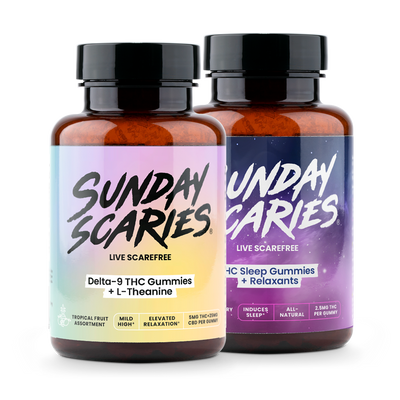 Day & Night THC Gummies Bundle
Stress Relief
Day & Night THC Gummies Bundle
Stress Relief
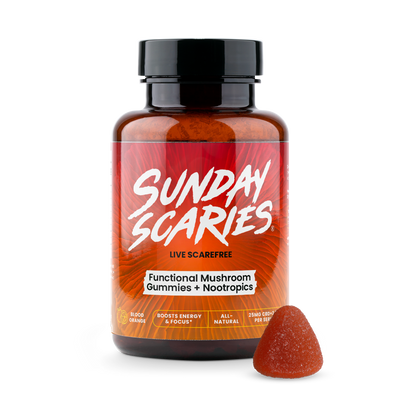 Mushroom Gummies
Focus Boost
Mushroom Gummies
Focus Boost
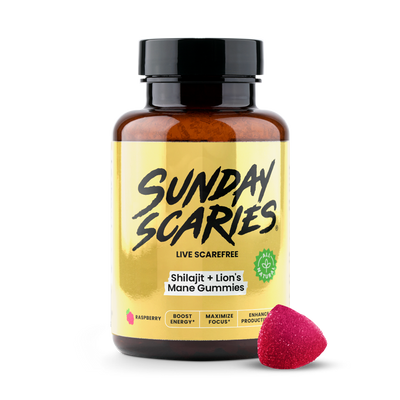 Shilajit Gummies
Focus Boost
Shilajit Gummies
Focus Boost
 Sunday Scaries Hat
Sunday Scaries Hat
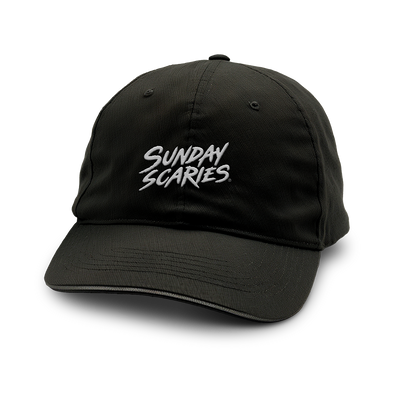 Sunday Scaries Dad Hat
Sunday Scaries Dad Hat
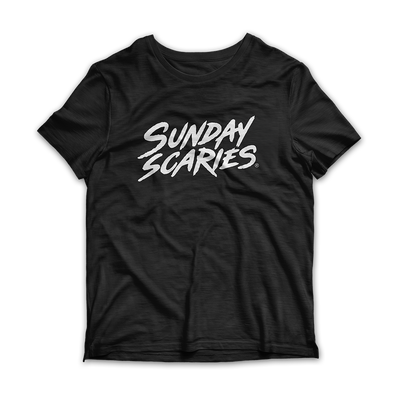 Sunday Scaries T-Shirt
Sunday Scaries T-Shirt
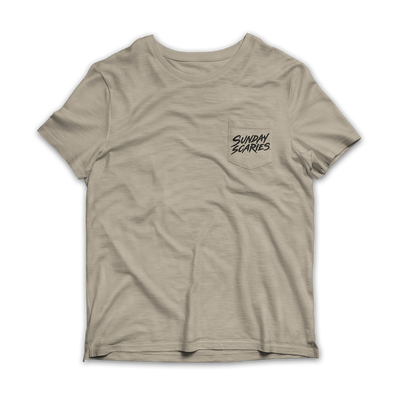 Sunday Scaries Pocket Tee
Sunday Scaries Pocket Tee
 Sunday Scaries Tank Top
Sunday Scaries Tank Top
 Sunday Scaries Sweatshirt
Sunday Scaries Sweatshirt
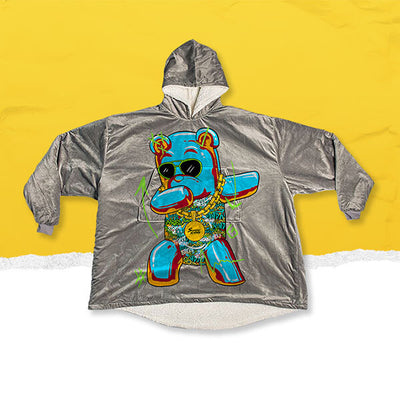 Sunday Scaries Blanket Jacket
Sunday Scaries Blanket Jacket
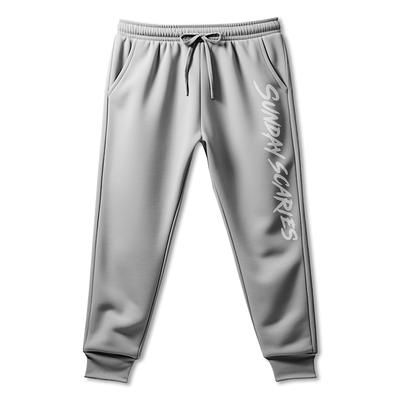 Sunday Scaries Sweatpants
Sunday Scaries Sweatpants
